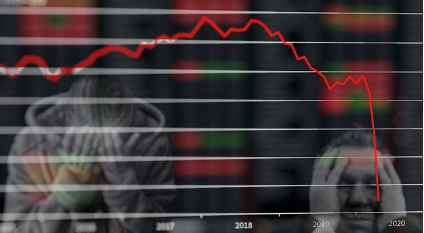현재 장바구니가 비어 있습니다!

[2024-08-06 Korea Economic News] Asian Markets Plunge: U.S. Employment Data Shock Leads to 7% Drop
Concerns Over US Job Data Lead to Plummeting Asian Markets
Recent news has shown a significant downturn in Asian stock markets, largely in response to disappointing US job data that has sparked fears of an economic downturn in the United States. The impact has been widespread, with heavy losses reported across several major indices, raising alarms among investors and analysts alike.
Asian Stock Markets in Chaos
The sell-off started in the morning when the US reported lower than expected job growth, which immediately sent shockwaves through the global financial markets. As a result, the Asian stock markets have faced a dramatic decline. Specifically, Taiwan’s weighted index fell by a staggering 7.91%, while Japan’s Topix index experienced a drop of over 7%. This prompted the activation of a circuit breaker in Japan, a mechanism designed to temporarily halt trading to prevent panic-selling, indicating just how severe the concerns are surrounding these economic indicators.
The situation has raised questions on the sustainability of economic growth in Asia amid a potentially struggling US economy. With the Korea Economic News spotlighting these events, it’s critical to understand the broader implications for the region’s financial stability.
Impact of US Job Data on Investors
Investors are notably wary in the wake of the recent US job data reports. A significant underperformance in the labor sector often translates to a slowdown in consumer spending and overall economic activity. The Korea Economic News has provided insightful analysis, indicating a possible ripple effect throughout the Asian economies. As the largest economy in the world, the US plays a vital role in driving global trade, and any signs of weakness can lead to hesitance among investors worldwide.
The Taiwan Stock Exchange saw its index drop sharply, which could affect not only local investors but also those in neighboring countries who are closely tied to Taiwan’s technology and manufacturing sectors. Similarly, Japan’s market response highlights concerns that the world’s third-largest economy might also be at risk, further compounding fears across Asia.
Market Resilience and Future Outlook
The ability of the Asian stock markets to recover from this downturn will depend largely on the next set of economic data from the US and how it impacts global investor sentiment. The Korea Economic News suggests that while the initial reactions are severe, markets tend to be resilient in the long run. Historically, they have bounced back from periods of uncertainty, especially if favorable economic indicators emerge shortly after.
However, analysts warn that prolonged weakness in the US job market could lead to a protracted period of instability in the Asian stock markets. This would not only affect stock valuations but also raise concerns over consumer confidence and spending patterns throughout the region.
In conclusion, the current situation presents a challenging landscape for Asian stock markets. With the looming threat of a potential slowdown in the US economy, investors are advised to stay alert and navigate these choppy waters carefully. The implications of the disappointing US job data extend beyond immediate stock market drops; it has the potential to shift economic forecasts for the entire region.
For continuous updates and in-depth analysis on the ongoing changes in the economy, make sure to check out Korea Economic News, where the latest news and insights are readily available.
To learn more about the latest trends and developments in Asia’s economy, don’t hesitate to visit walterlog.net for valuable information and resources.